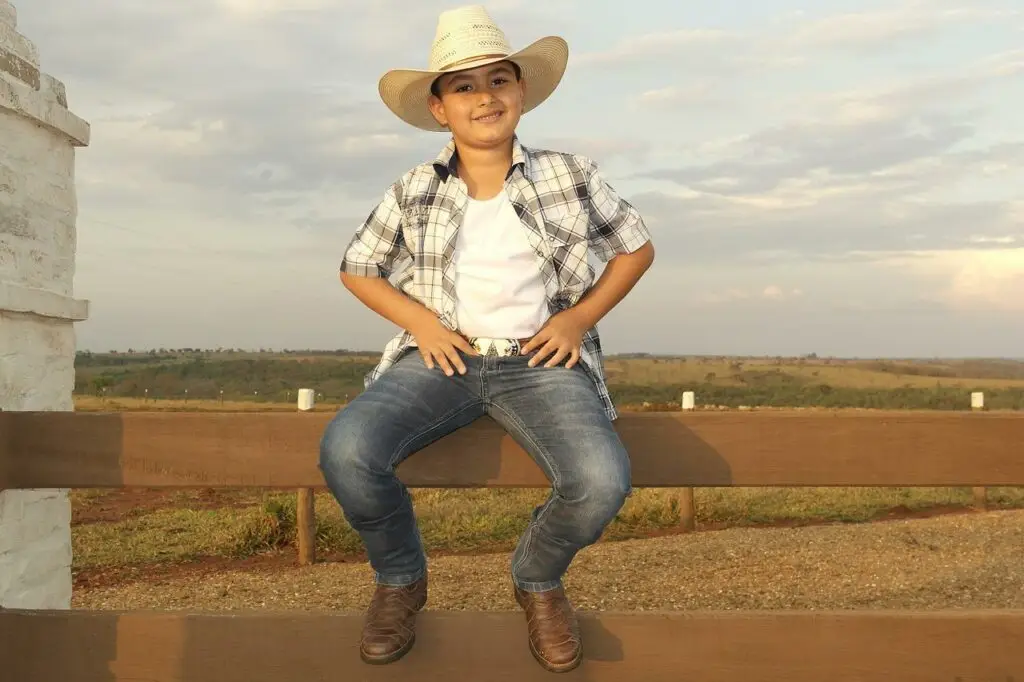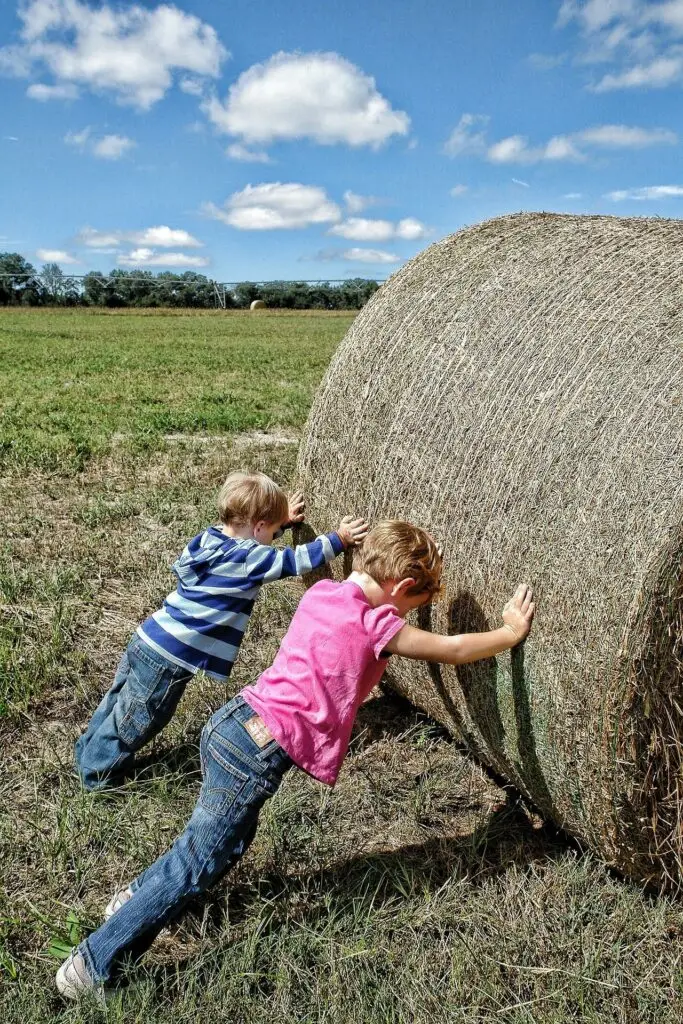Court Decision Splitting Up Family Farm Reversed: When Farm Succession Planning Fails

The article is not a substitute for legal advice. Farm succession planning can be a complicated process for many farm families. A decision out of Minnesota involving a farm dairy’s succession plan highlights what can go wrong when farm families do not handle the situation. The parents had three children, and one child had moved back to take over the farm. The parents placed the farmland into a revocable trust with each child as a beneficiary to the trust. The trust allowed the three children to co-own the property and granted one owner the ability to petition the court to partition (divide up) the property. This case highlights why farm families should develop plans to enable the child(ren) who want to continue the farm the ability to sustain the farm but at the same time be equitable to the non-farm heirs. Background The Neumanns operated a dairy farm consisting of two parcels of land. In 1995, the Neumanns conveyed their two parcels of farmland into a revocable trust, with the couple’s three children as beneficiaries of this trust. In 2004, a daughter (Pronschinske) and her family purchased the Neumanns’ dairy herd and leased both parcels of farmland. Pronchinske and her family moved a mobile home on the farm and converted the dairy into an organic operation. Mr. Neumann passed away in 2008. In 2009, Pronchinske and Mrs. Neumann entered into a written lease for the farmland, with both parties agreeing that the value of capital improvements Pronchinske had made would apply to the purchase price of the farm in the future, or alternatively, Pronchinske would be compensated for the cost of capital improvements. Mrs. Neumann died in 2012, and the three children became co-tenants in the farmland with equal undivided interests. In 2015, one of the Neumann children commenced a partition action against his siblings, Pronchinske and Anderson. A partition action is when the court divides a common property among its co-owners or requires the property to be sold and the money divided among the co-owners. Minnesota law requires that referees be appointed in such cases to determine how the property should be divided. Referees are disinterested parties who interview the parties involved in a partition suit, view the property, inspect as needed, and recommend to the court how to handle the partition suit. The three children in this case agreed on the appointment of two referees. In late 2016, the referees issued a report to the district court. In the report, the parties all agreed to 1) use a 2012 appraisal and 2) that the property could not divide without great prejudice to Pronchinske who wished to continue operating the farm after making substantial improvements. The referees recommended that the court award Pronchinske both parcels of farmland with a credit of $119,000 in capital improvements and pay $387,667 to her two siblings. The district court sent the report back to the referees to clarify what “great prejudice” towards Pronchinske in the report meant. In 2017, the district court granted a motion to set aside the report, finding that the report was only advisory and not binding on the district court. The district court also found that there was no evidence of great prejudice to all the owners, just Pronchinske. The district court concluded to divide the farmland into equal thirds to the three children. Pronchinske appealed that ruling. Court of Appeals Opinion On appeal, the court had to determine how much deference the referees’ report was owed. Legal scholars had previously written that deference should be given to the written report unless the referees made a procedural error that adversely affected the rights of one of the parties. If the court does set aside a report, then the court needs to refer back to the referees or appoint new referees. The court determined that the district court should have deferred to the referees’ report. In reviewing the report, the district court erred in not deferring to the referees’ report. Reviewing the referees’ report, the court determined that one sibling viewed allowing Pronchinske to buy the property as a forced private sale and preferred the property be put up for public auction. The other siblings were not in favor of a public auction. All this demonstrated to the court that the district court had erred in not properly deferring to the referees’ report. The court reversed the district court’s decision, although this ruling may not be the final word on this decision. Why Care? The parents in this case made a decision many farm families make; they decided to treat each kid fairly by giving each an equal share of the parent’s estate. Dividing assets equally, however, is not always fair to the one child who may still be running the farm. Talking to your family and developing a plan that is fair but still allows the one sibling to continue on the farm is your better choice. As this case highlights, a revocable trust giving equal rights to all the siblings is probably not the right method to reach a result that allowed Pronchinske to continue to operate the farm. Imagine how you would feel if you are Pronchinske. You have built up a farm, built a home on the farmland, and are now potentially going to see two-thirds of your farmland sold with no guarantee you will be the highest bidder. Developing a farm succession plan allowing Pronchinske to continue operating the farm while treating the other two siblings fairly would have been a better way to work this out. Developing your farm succession plan can prevent problems and potentially save family relationships after you are gone. References Neumann v. Anderson, A17-1450, 2018 WL 1997090 (Minn. Ct. App. April 30, 2018).
Farms are Always Transitioned to Imperfect People

Are you waiting for that perfect moment when everyone is “ready” to successfully transition your family farm to a next generation? Many use that logic. But that moment will never occur. There are no perfect moments or people. Our world is full of imperfect people striving to advance their skill set through experience and knowledge. Now that we’ve got that out of the way, let’s deal with the imperfect reality. An open mind is a huge asset for a farm transition. How so? Be open to listen to what the other person has to say, what their dreams are for the farm, and how they hope to accomplish those aspirations. When each truly hears what the other is saying, a bridge is built between the two parties – one that provides a strong foundation and solid future. Best results happen when the parties lay their “what ifs” on the table and let go of fears of the future’s unforeseen. Trust provides a solid stepping stone when you know the next generation will do all in their power to ensure the farm’s success. The next generation’s goal is always success of the farm and to transition it to yet another generation. That’s the foundation of American agriculture. Elements for Success You can never start planning for transition too early. The greatest risk is starting too late. Next-gens can grow impatient and apply their energies to establish lives elsewhere, especially if they think it won’t happen through the family farm. Bring everyone to the table to discuss the options. Communicate willingly. Share each person’s goals for the farm. Patiently listen, share honestly and appreciate others’ perspective and points of view. Compromise is imperative as people have different ideas. Develop a plan that works for everyone. Work through fair versus equal considerations. Is fair required to ensure transition of the farm to the next generation? Equal may make an impossible financial scenario for next-gen farmers. Equal may mean the farm has to be sold beyond the family to pay debt to siblings. Make a timeline and stick to it. A timeline provides accountability for all involved. Yes, challenges may arise that require timeline adjustments. But it should be an exception, not the norm. Include ag professionals experienced in farm transition with farm expertise pertinent to the needs of your business. Allow qualified attorneys to complete the necessary documents to put it all in writing. Remember, farm transition is a work in progress. Like any business, it’ll require adjustment as time passes and circumstances change. Without planning, your farm may not stay in farming, much less stay in the family. Conversation Starters PA Farm Link provides tools to help get the conversation started. The Planning the Future of Your Farm workbook is available and can be shared with farm family members. It’s a proven tool that has assisted many farmers as they work through the succession planning process. Another option is to share tools from Succession / Transition | PA Farm Link have farming partners or family members listen to the available podcasts and webinars. They are very informative and available 24/7 when conversation opportunities arise. PA Farm Link also will connect you with facilitators to facilitate farm family meetings and/or provide referrals to ag professionals for planning purposes. Have a particular challenging situation? You’d be surprised the obstacles farmers have overcome to ensure the succession of the farm to the next generation. An ag professional can help get the process started and provide direction.
Are We the Examples Our Next-Gens Need?

Remembering those who came before us can help us grapple with our own challenges. My maternal great-grandmother, for instance, navigated a covered wagon from Oregon to Pennsylvania with two young children. Her husband sent her ahead to ensure they made it to Pennsylvania before snow hit. My mother amazed cancer specialists in Pittsburgh as faith, farm life and meds provided a much better outcome than they predicted. All the while, she remained an active partner on the farm. Widowed rather young, my paternal great aunt was the feistiest! She worked to make ends meet for herself and two children, and was best known for her cooking and baking. Aunt Cora gifted homemade foods and crocheted items to family. She refused to install an indoor bathroom and never admitted her true age! My paternal grandmother was always on the move around the farm and in the community. One of her biggest unspoken challenges was losing her second child during an extremely difficult birth. I can’t imagine the emotional pain. Reality Threads Then and Now Together Every generation has faced huge challenges, and each overcomes them in their own way. The trials are different, but you and I aren’t the first to face them. One common denominator among those I mentioned was their positive attitudes. Not once did I hear them complaining about the situations they wrestled with. Instead, they chose not to let those trials ruin their life or their positive approach. We are not the first to face them; nor will we be the last. And, it’s a proven medical fact: A positive attitude is a must-have when fighting certain diseases as well as farming challenges. A Good Example for Our Next-Gens? Think about what examples you’re portraying for your next generation as you deal with tough situations. We all know cursing, swearing and blaming others or self won’t solve anything. Yes, a diagnosis or crisis may warrant it. But trust me, it’s not a solution. It usually makes the situation worse. It takes time but we each have a choice. We can choose to seek professional help while leaning on God, loved ones and friends to navigate our way through the decisions with a positive attitude. Too often, we ask: “Why me? What have I done to deserve this.” Refusing to make tough decisions or ignoring the situation allows it to get worse. We can learn to celebrate each day and give the battle all we’ve got with a positive attitude. Then seek the help we need. We also can embrace the people who support us through kind words, acts of kindness and prayer. Accept the blessing they provide. When we do so, we become examples for our next generation. Thankfulness is Part of the Package I’m thankful for the strong, feisty women who came before me. They provided great examples for me as I faced a cancer diagnosis and treatment. I’m thankful for prayer warriors continually lifting me in prayer during treatments and stem cell transplant, talented medical staff, and God’s amazing answers to prayer. Receiving them as blessings is huge. Whether it’s a physical or mental health crisis, succession or farming crisis, there are always professionals, family and friends to support and help us when we need them. Our job is to accept the help and answers they provide. Then, bravely move forward as required, leaving a legacy of hope and resiliency. Subscribe to Our Succession Blog & Newsletters Today Email
Family Farm Governance Plan

A Family Farm Governance Plan is an Important Tool in Succession Planning This post is not legal advice or advice on how to deal with family members, in-laws, or other relatives I want a show of hands: How many of you have a family business governance model for your family farm? For those of you who raised your hand, you can stop reading now, but if you did not raise your hand, you might want to consider such a model for your farm. Although you might not think they are a good fit for family farms, a governance plan can be a useful tool to facilitate bringing the next generation into the operation and ensuring the farm’s future success. With a governance plan, you can include family members in critical business decisions, enabling future generations to learn how to make business decisions. Critical components of a family governance plan will be annual family assemblies, possibly family council meetings, and a family constitution (Davis, 2001). Family Assemblies and Family Councils When dealing with a family business, such as a family farm, companies will often have members heavily involved in the farm and those who have taken other career paths in life. An annual family assembly is a way to keep all adult family members and spouses aware of what is going on in the business. Families should set policies on the appropriate age for children to start attending the meetings. At these meetings, family members involved in operating the farm should present information on the farm’s status. What is the financial situation of the farm? Does the family need to discuss the direction the farm should be heading in, like a new niche market? Important events? Key changes in the farm? Does the family need to bring in the farm’s accountant to discuss tax law changes impacting the farm? Are there key estate/farm succession plan changes? This type of assembly allows both on-farm and off-farm family members to discuss the family farm. Does the family have problems with communicating? If so, the family may want to consider bringing in a facilitator to handle discussions among the family members. Many farm families often do not wish to discuss these issues. Still, suppose the goal is to allow the next generation to take over the farm and keep it thriving. In that case, the family needs to consider keeping those family members aware of the farm’s current situation. One final note on the family meetings the governance plan requires, do not hold those meetings on major holidays. Yes, the family is together during Thanksgiving or Christmas, but that is not the time to discuss these issues. Holidays are stressful enough. Set the assemblies or council meetings on dates that give family members enough time to prevent scheduling conflicts. If travel is an issue, consider allowing family members to Skype in or call in to participate. Once the family grows beyond a manageable size for assemblies (this could be over 12), the family should consider setting up a family council. This family council will develop the agendas for the family assembly and help inform all family members of business decisions and keep those family members involved in the business aware of non-participating family members’ views. The family council should have equal representation of family members working on the farm and those off the farm and include family members of all ages. This will help to ensure that the council has fair representation. Family Constitutions Finally, the farm will need to have a constitution or a document to guide the family’s business decisions and family decisions. How will the family employ the next generation? What career development opportunities will exist for those family members in the business? How are family members to be compensated? These are all critical considerations for the family to review. What Does This Mean for You? As you develop a farm succession plan, you need to consider how you will make the next generation aware of the decisions made on the farm. It is also essential to think that even though a family member might not be a part of the farm business, that member may still have key input. A family governance plan will allow you to get feedback from all family members and keep them aware of the farm’s going on. The plan will also help ensure that the family and the farm are successful down the road. References Davis, John A., Three Components of Family Governance (Nov. 12, 2001, Harvard University) http://hbswk.hbs.edu/item/the-three-components-of-family-governance
When Should I Start My Business Succession Plan?

When do you start your business succession planning? The short answer is you can never start too early.